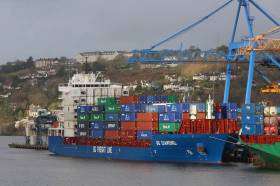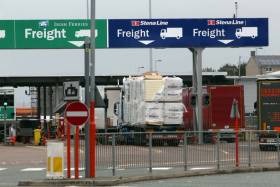Displaying items by tag: NoDeal Brexit
Irish Exporters Plead for Intensification of No-Deal Brexit Planning
#Ports&Shipping - Irish exporters reports RTE, have called for an urgent intensification of no-deal contingency planning by the government and the EU in the face of heightened uncertainty around Brexit.
The Irish Exporters Association (IEA) has warned that the risk of a disorderly exit by Britain from the EU has increased following the delayed vote on the EU-UK Withdrawal Agreement and today’s no-confidence vote on Theresa May’s leadership.
According to Simon McKeever, chief executive of the IEA, the potential economic impacts of the UK crashing out of the EU next year will be "immediate, extensive and far-reaching for Irish businesses."
For more on the story click here.
Food Supplies Could be Hit by No-Deal Brexit, Says Stena Line
#FerryNews - Food supplies could be affected reports BBC News by a no-deal Brexit and and see traders bypass Great Britain, the ferry firm Stena Line has warned.
There is "very little readiness" at ports and "anxiety is high", said Ian Hampton senior executive at the global ferry operator.
Stena is the largest ferry operator in the Irish sea and owns three UK ports.
The government said it had proposed an ambitious future relationship with the EU to keep trade flowing.
Mr Hampton said there was a possibility Stena Line would reduce services to and from the UK as a result of Brexit.
Click here for more on the story.
#FerryNews - According to a UK Government minister, there will be no extra customs and security checks at Holyhead port - even in the event of a no-deal Brexit.
The Welsh port writes the Daily Post has lived with the concern that additional border checks would be imposed after Brexit - especially if the UK and EU fail to agree a trade deal.
This has led to warnings about lorry queues on the A55 if the seamless border between the UK and Ireland is disrupted - with little room at the port for additional customs checks.
But Brexit minister Chris Heaton-Harris came to the port this week to give "reassurance" to ferry giants Stena Line and Irish Ferries that no extra barriers to travel and trade will be erected on the UK side after Brexit - even if no deal is agreed.
The Daily Post has more here on the story.






























































